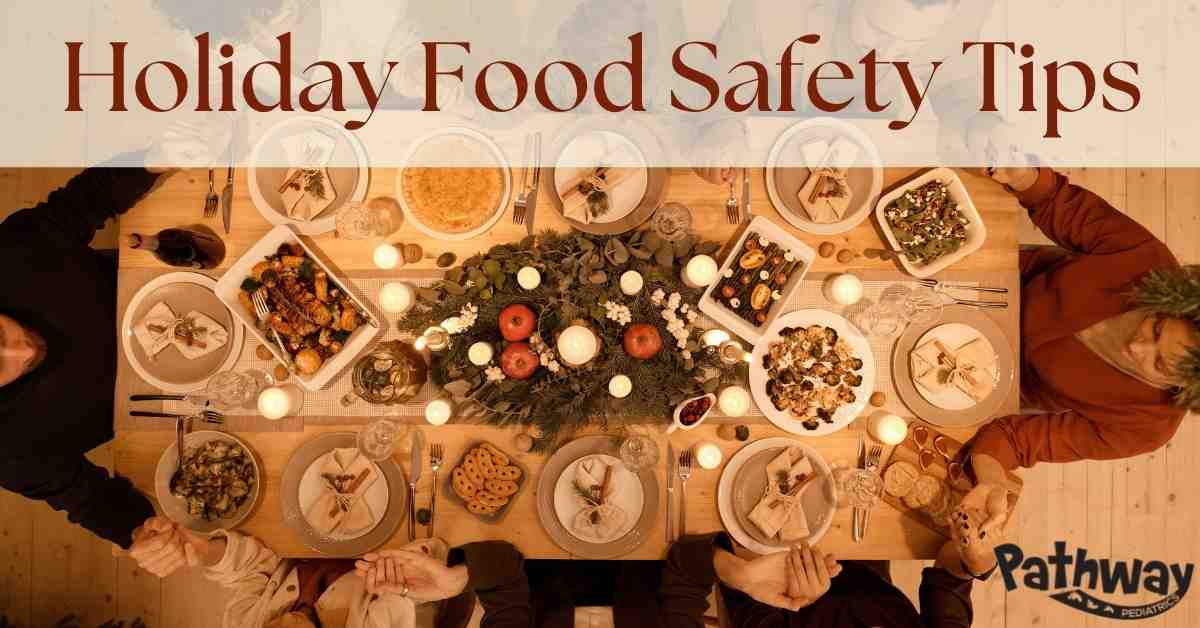Holiday Food Safety Tips
December 21, 2022

Whether it is holiday cookies, roast turkey, honey baked ham, green bean casserole or even simple homemade rolls, foods are an important ingredient of holiday celebrations. Teaching children to cook your family’s recipes can nurture ethnic identity and culture, strengthen family relationships and offers young chefs a sense of accomplishment. But how do we teach our children to cook these delicious foods safely?
American Academy of Pediatrics offers some tips to keep holiday cooking and feasting fun and healthy:
- Cook & wash thoroughly. When preparing food for a holiday celebration, follow food safety guidelines. Bacteria are often present in raw foods. Fully cook meats and poultry, and thoroughly wash raw vegetables and fruits.
- Heed hand hygiene. While you’re teaching your children family recipes, also teach them about good food safety. Wash your hands frequently, and make sure children do the same.
- Sample safely. If you offer your helper a taste, be sure to wash the spoon before putting it back into the food. Also, make sure that taste doesn’t include raw eggs or other ingredients that should be cooked before be eaten.
- Separate raw foods. During preparations for a party, the refrigerator and freezer can become crowded with with sweets, roasts and other goodies, but don’t let these become breeding grounds for bacteria. Always keep raw foods and cooked foods separate, and use separate utensils when preparing them.
- Thaw in the fridge. Always thaw meat in the refrigerator, never on the countertop.
- Prevent burns. Keep hot food and liquids away from the edges of counters and tables, where they can be easily knocked over by a young child’s exploring hands. Be sure that young children cannot access microwave ovens. Turn pot handles toward the side or back of the stove.
- Put away or toss? Foods that require refrigeration should never be left at room temperature for more than two hours.
- Clean-up quickly. After a holiday meal, clean up immediately. A toddler could rise early and choke on leftover food or come in contact with alcohol or tobacco.